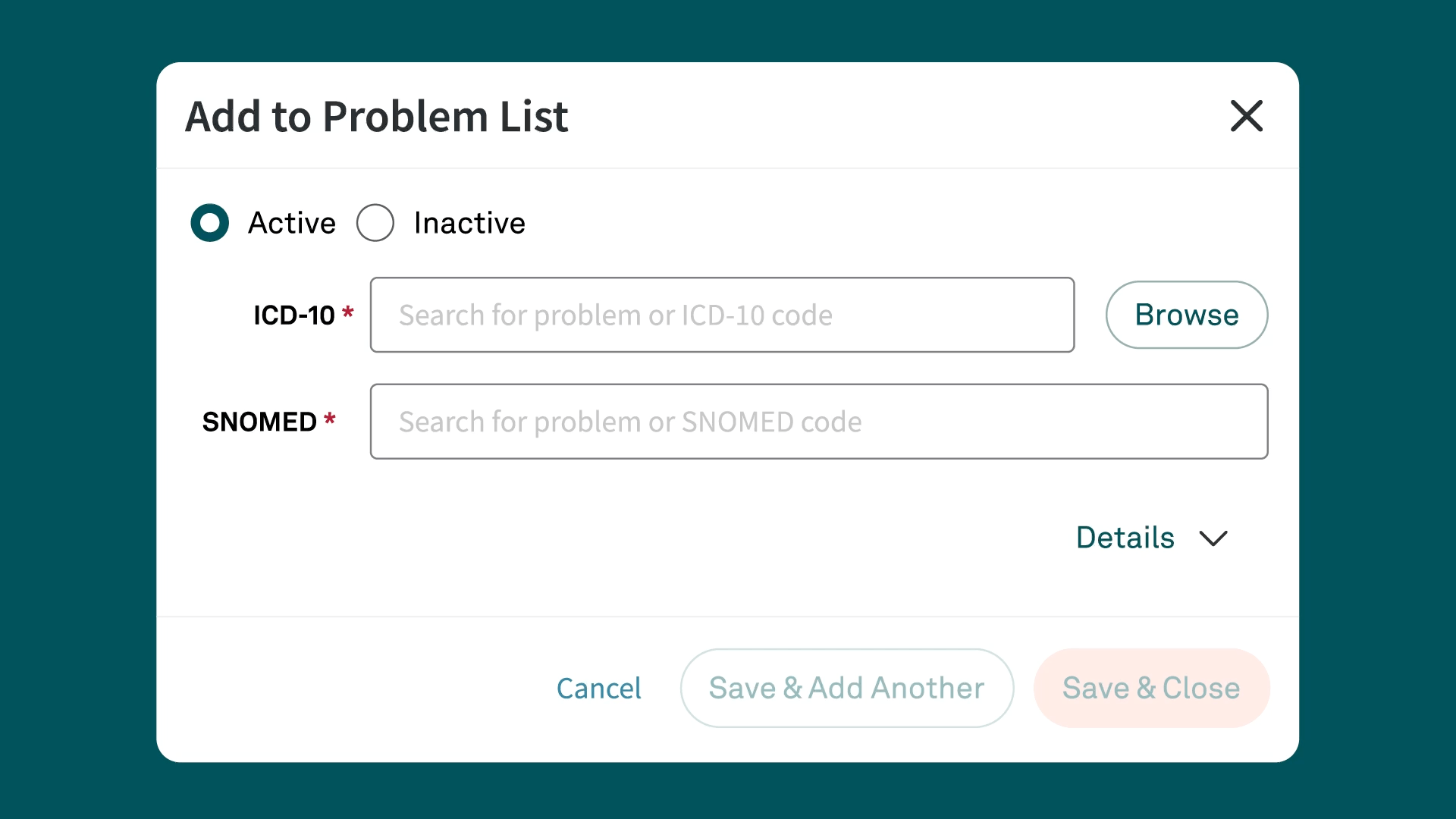ICD-10 Code E43
Unspecified severe protein-calorie malnutrition
What is the code E43?
E43 is an ICD-10-CM code used to describe “unspecified severe protein-calorie malnutrition.” This code is part of the E40–E46 range, which covers various forms of malnutrition, including kwashiorkor and marasmus. E43 is specifically reserved for cases where severe malnutrition is present but not otherwise classified under more specific codes.
Download your free resource now
Access it instantly — just complete the form

Detailed description of E43
Unspecified severe protein-calorie malnutrition (E43) is a condition characterized by an extreme deficiency in protein and caloric intake, leading to significant health issues. This condition can result from various factors, including inadequate dietary intake, chronic illness, or socioeconomic factors that limit access to nutritious food. Severe malnutrition can affect multiple body systems, leading to complications such as weakened immune function, muscle wasting, and delayed wound healing.
Symptoms commonly associated with E43
Symptoms of unspecified severe protein-calorie malnutrition include:
- Extreme weight loss and muscle wasting
- Fatigue and general weakness
- Edema (swelling due to fluid retention)
- Immune system deficiencies, leading to frequent infections
- Stunted growth in children
- Cognitive impairments and difficulty concentrating
- Poor wound healing and increased susceptibility to skin infections
Related and similar ICD-10 codes
There are several ICD-10 codes related to malnutrition that may be used based on specific clinical details:
- E40: Kwashiorkor
- E41: Nutritional marasmus
- E42: Marasmic kwashiorkor
- E44.0: Moderate protein-calorie malnutrition
- E44.1: Mild protein-calorie malnutrition
- E45: Retarded development following protein-calorie malnutrition
- E46: Unspecified protein-calorie malnutrition
Appropriate usage and guidelines for E43
Use E43 when severe protein-calorie malnutrition has been documented without further specificity. It is important that the provider has clearly documented the diagnosis in their assessment. This code is often used when the malnutrition has been specified as severe without any further information. Other terms that are coded to E43 are starvation edema, severe malnourishment, and emaciation due to malnutrition.
Common pitfalls in coding with E43
Common pitfalls when coding E43 include:
- Using E43 when the malnutrition has been identified as mild or moderate rather than severe
- Failing to document the severity and specifics of the malnutrition, which can lead to inaccurate coding
- Overlooking underlying conditions or socioeconomic factors that may contribute to the malnutrition, which should be documented separately
Key resources for E43 coding
For accurate coding and additional guidelines, refer to the following resources:
- ICD-10-CM Official Guidelines for Coding and Reporting: These guidelines provide comprehensive instructions for using ICD-10 codes.
- Centers for Medicare & Medicaid Services (CMS): CMS offers a wealth of resources and updates on coding practices, including webinars, manuals, and bulletins.
- Professional coding organizations: Organizations like the American Health Information Management Association (AHIMA) and the American Academy of Professional Coders (AAPC) offer educational resources, certifications, and support for medical coders.
- Coding reference books and software: Reference materials such as the ICD-10-CM codebook can support medical coders and providers.
These resources provide detailed instructions and updates on coding standards and practices.
Conclusion
E43, unspecified severe protein-calorie malnutrition, is the ICD-10-CM code for documenting severe malnutrition cases where specific details are not available. Accurate coding relies on clinical documentation and awareness of related codes. Using available resources and guidelines can aid in precise and effective coding practices for independent medical providers.
Simplify ICD-10 code documentation with Tebra
Tebra’s EHR+ gives you quick searches and Systematized Nomenclature of Medicine (SNOMED) field names for efficient code documentation. Plus, Tebra automatically saves ICD-10 to SNOMED mapping for future searches, streamlining your workflow.

Discover how Tebra helps providers effortlessly document health-related issues and conditions in this detailed post.
Stay Ahead with Expert Healthcare & Billing Insights
Get the latest industry updates, financial tips, and expert strategies — delivered straight to your inbox.


